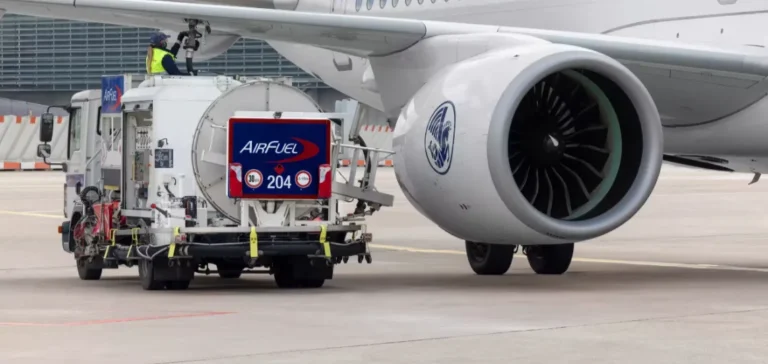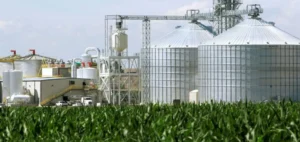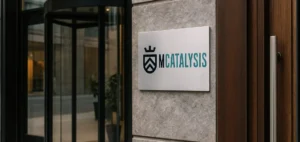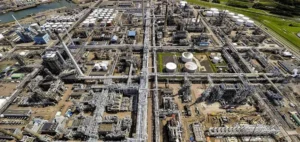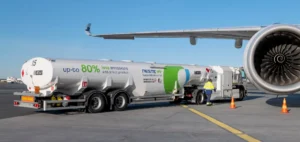China National Aviation Fuel Company (CNAF), the leading aviation fuel supplier in China, confirmed the acquisition of a stake in a sustainable aviation fuel (SAF) production facility operated by Henan Junheng Industry Group Biotech Co, a privately owned producer based in Puyang, Henan Province.
The announcement was made Monday on the company’s official WeChat account, without disclosing financial terms or ownership percentages. This transaction marks CNAF’s second investment in a privately controlled SAF entity, a sector still loosely structured but deemed strategic for the evolution of China’s air transport market.
Current Capacity and Expansion Plans
Junheng’s facility currently produces up to 400,000 metric tons of sustainable aviation fuel annually. The group has also disclosed plans to expand its output to one million tons per year by mid-2026. The primary feedstock used by Junheng is used cooking oil, a resource already utilized in various SAF projects globally.
Though relatively limited in scale compared to the Chinese market size, this production is part of a series of local initiatives aimed at strengthening domestic supply without waiting for a unified regulatory framework.
Increasing Equity Investments
CNAF previously announced, in July, the acquisition of a 10% stake in another SAF project, this one operated by Zhejiang Jiaao Enprotech. That transaction was valued at approximately 261 million yuan, or 36 million U.S. dollars. These investment moves reflect the group’s strategic shift toward an alternative energy segment adjacent to its traditional business core.
With China ranked as the world’s second-largest aviation fuel consumer, the growth potential for alternative fuels remains substantial. As of now, the country has not implemented a nationwide SAF mandate, although a pilot program was launched in 2024.
Expansion of the Pilot Program in China
The initial test program included around a dozen flights partially powered by SAF departing from Beijing, Chengdu, Zhengzhou, and Ningbo airports. In March 2025, the initiative was extended to all domestic flights departing from those airports, indicating a gradual approach to scaling alternative fuel usage without immediate regulatory changes.
These successive announcements signal a progressive repositioning of legacy market players toward hybrid models combining conventional supply chains with emerging energy sources. The pace of private-sector investments may also influence how quickly China’s SAF market takes shape.


